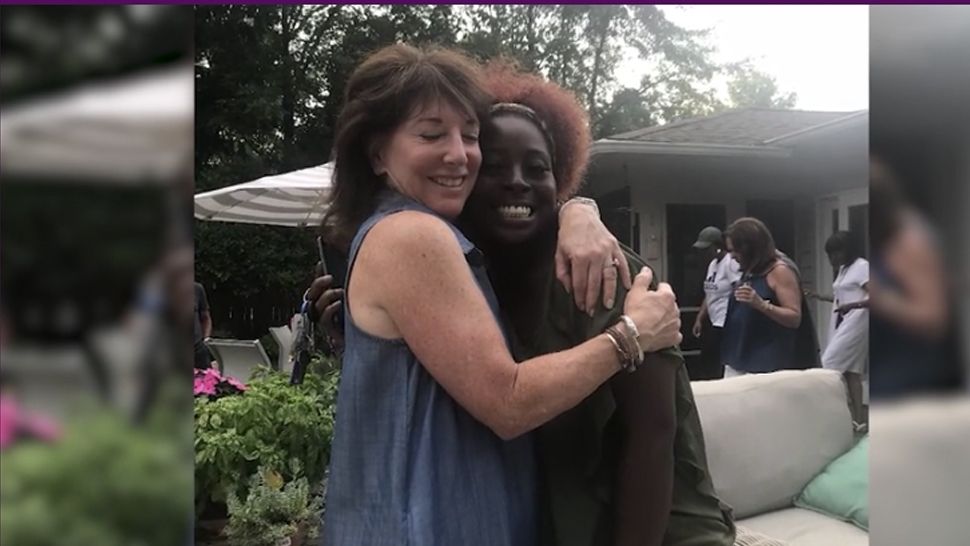Part 4 of Spectrum News 1's series "Breaking the Cycle: Generational Poverty
CINCINNATI, Ohio– Generational poverty does not care about your race, your gender, where you live, or where you came from. It is an endless cycle for a lot of families. There are a lot of solutions, and a lot of ways to tackle the problem, and at Brighton Center, they are doing just that.
In the Cincinnati area, nearly 1 in 4 people live in poverty. U-S Census data shows in recent years; the poverty rate has increased compared to the declining national and state averages.
The Brighton Center in Northern Kentucky, just across the river from Cincinnati, is trying to identify the needs of families to help break the poverty cycle. There is a saying in the area if you need help, go to Brighton.
Tammy Weidinger, President, and CEO at the Brighton Center told Spectrum News 1; "We see a lot of people here at Brighton Center who are low-income, who some would be considered in poverty by the federal definition. I think the biggest issue with folks is they need access to opportunities, and they need the support to accomplish that opportunity whether it's in education, or training, or whatever that is that's going to elevate them to a higher-level paying job."
Weidinger says most people will try and do things on their own, but roadblocks often prevent them from following through. And just asking for help, can be the biggest obstacle.
"Sometimes having children makes people reach out for help because they want a better life for their child and that motivates them. Sometimes it's just a big crisis that happens in the family that folks get overwhelmed. Sometimes it's simply word of mouth you know, a neighbor will say I see this is happening, you know if you go over there something good can happen from that," said Weidinger.
However, it's not always about waiting for someone to come to them for help.
"Once you build a relationship with one member of the family, then it's a lot easier to reach out to the rest of the family. And we do a lot of outreach. We will go places where we know people are and put services in front of them because they don't know to ask," added Weidinger.
Brighton Center started as a storefront in 1966 in Newport, Kentucky. It now operates several facilities, including the Brewster Family Center, and an employment training center.
"We've really grown over the years and really tackled this notion of self-sufficiency and what is it really going to take to move people to self-sufficiency," said Weidinger.
At its employment center, these people are working in a mock doctor's office, learning how to be a medical assistant. Their tuition is underwritten by grants and provides them an opportunity to get a job. Brighton will continue to offer services for them to keep moving upward in their careers.
Here, students are learning and working on business and computer technologies.
Part of the poverty issues in and around Cincinnati is nearly 2 in 3 jobs don't pay a living wage.
Educating people and finding good-paying jobs is just part of a multi-step process at Brighton Center.
"You can't just do one thing at a time. So we always have to look at any issue of safety and security right off the bat. If somebody's homeless, the first thing we've got to figure out is to get them in safe and sanitary living conditions. Some things are really obvious you have to do first, tackle first, but then other things go together" added Weidinger.
Last year, Brighton Center helped nearly 44-thousand people. That's half of the number of people who needed help when the recession hit in 2008. And it's not just about job training and housing for one person, Brighton's Scholar House targets parents and children from the same families to offer services. They also have a women's recovery center, provide financial services, youth programs, and early childhood development.
Weidinger has been the director at Brighton Center since 2011, but she's been involved with Brighton for 37 years. She knows first-hand that what they do works to break the generational poverty cycle.
Weidinger concluded, "I've definitely seen generations, and I've seen people go from living in a family where there is poverty, where it's low-income to being in a position to get a good job, to support their own family, and to reach down and help other members of their family. So it can happen, it does happen. We have to have patience with people and know that it doesn't happen overnight."









